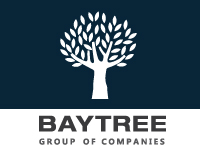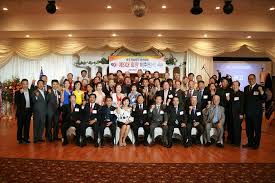CA
ON
한인을 위한 KOREAN JOB BANK
전화: 6476245886
4065 Chesswood Drive Toronto, ON
.jpg)
준비된 바이어 그룹 , BAYTREE 이너써클
전화: 416-226-5999
7030 Woodbine Ave. Suite 103 Toronto, ON

행복부동산 -수잔정 Home Standards Brickstone Real
전화: 647-866-7878
180 Steeles Ave W Unit 30, Thornhill, ON

1004열쇠
전화: 416-895-1004
4 Blakeley Rd. Toronto, ON

럭키조경 & 나무자르기
전화: 647-564-8383
4699 Keele St. Unit 218 Toronto, ON

럭키 여행사
전화: 416-938-8323
4699 keele st.suite 218 toronto Ontario M3J 2N8 toronto, ON

호남향우회 (토론토)
전화: 647-981-0404
7 Bishop Ave. #2411 Toronto, ON

스마트 디지탈 프린팅 - 인쇄 및 디자인
전화: 416-909-7070
4065 chesswood dr. Toronto, ON
.jfif)
한인 시니어 탁구협회
전화: 647-209-8933
1100 Petrolia Rd Toronto, ON
4.jpg)
토론토 민박 전문집
전화: 416-802-5560
Steeles & Bathurst ( Yonge) Toronto, ON

조준상 (로열르페이지 한인부동산 대표)
전화: 416-449-7600
1993 Leslie St. Toronto, ON

홍이표치과
전화: 647-985-0456
9625 Yonge St #4, Richmond Hill, ON Toronto, ON
1.jfif)
It would be a place where all the visitors including me share the life stories and experiences through their activities,especially on life as a immigrant.
Why don't you visit my personal blog:
www.lifemeansgo.blogspot.com
Many thanks.
블로그 ( 오늘 방문자 수: 388 전체: 267,951 )
Recriminations and Regrets Follow Suicide of South Korean
lakepurity
2009-05-31
Recriminations and Regrets Follow Suicide of South Korean
Korea Pool/Reuters
By MARTIN FACKLER
Published: May 24, 2009
SEOUL, South Korea — As South Koreans laid white chrysanthemums at makeshift memorials for their former president, Roh Moo-hyun, many said Sunday that the once-popular champion of clean government had been driven to suicide by more than humiliating bribery allegations.
Lee Jin-man/Associated Press
A South Korean woman touches a portrait of former President Roh Moo-hyun at Jogye temple in Seoul, South Korea, on Sunday.
They directed much of their ire at the prosecutors and conservative media who relentlessly pursued the accusations of corruption against Mr. Roh and his family. Many accused the current president, Lee Myung-bak, of orchestrating the investigation, a move that could become a political liability for him.
Others expressed deeper misgivings that Mr. Roh was a victim of the legacies of South Korea’s authoritarian past — most notably the near ritual of incumbent presidents presiding over investigations of their predecessors.
“It has become a bad political habit for presidents in South Korea to try to gain support by punishing the former president,” said Kang Won-taek, a politics professor at Seoul’s Soongsil University. “What happened to Roh Moo-hyun shows that it is time to break this habit.”
The tendency to define a presidency by the failings of the one that came before took root as the country struggled to redefine itself in the early 1990s as a young democracy after years of dictatorships. Many Koreans were exhilarated as the first democratically elected governments punished the men who had resisted democracy for so long.
The sight of former President Chun Doo-hwan — a military ruler blamed for a crackdown of pre-democracy protesters that ended in 200 deaths — being paraded in a prison jumpsuit proved cathartic for the nation.
But political experts, and even many average Koreans, say that their nation’s struggle to shed its authoritarian past was never finished, and that investigation of Mr. Roh highlighted at least two other legacies: a powerful presidency and a justice system with few checks and balances, especially on its prosecutors.
At least so far, the subject of Mr. Roh’s culpability has been put aside, overwhelmed by the shock and sadness over his dramatic death on Saturday, when he threw himself off a cliff. In the weeks before that, he acknowledged that a businessman who supported him had given more than $6 million to his wife and son and his brother’s son-in-law while he was in office, but he denied that they were bribes. He said he did not know about the transactions until he left office.
The money for his wife had been used to pay for his son’s tuition at Stanford University, among other things, according to a top aide. In a country where education is key to social status, Mr. Roh, a self-educated lawyer, never won full respect from many people, despite having become a lawyer and the leader of a powerful economy.
Much of the outpouring of public anger since Mr. Roh’s death has focused on the murky ties between the Blue House, as the president’s office is called, and the Supreme Prosecutors’ Office, which led the investigation into Mr. Roh and other former presidents. These suspicions are also a hangover from the pre-democracy days, when prosecutors were seen as military henchmen, using the legal system to attack their political opponents.
“The prosecutors have become the most omnipotent force in Korean society today,” said Moon Chung-in, a political scientist at Yonsei University in Seoul and former adviser to Mr. Roh. “Their strength is a legacy of dictatorship that still affects us.”
Mr. Moon said that Mr. Roh actually ended up strengthening the power of prosecutors by weakening one check on their power: the National Intelligence Service, the South Korean spy service used by military rulers against South Korea’s citizens. Mr. Roh appointed a former human rights lawyer as its director and curtailed many of its internal surveillance activities.
Mr. Roh also tried to rein in the prosecutors, but with less success. Though he weakened links between prosecutors and the Blue House, he failed to pass some of their powers to the police or create grand juries to oversee investigations.
In 2003, his first year in office, Mr. Roh also held a widely watched public debate with 10 prosecutors in which he called the prosecutors office a “powerful organization” that the Justice Ministry had “failed to rein in.”
Mr. Roh also came to office with promises to break the cycle of corruption that has plagued South Korean presidents, and made them vulnerable to investigation. He also vowed to curtail the powers of South Korea’s presidency and sever its links with the country’s “chaebol,” or big-business conglomerates.
Mr. Roh’s death unleashed a renewed wave of sympathy for a former president who had alienated many supporters by signing a free-trade agreement with the United States and seeming to bungle economic policy.
Many of the thousands who turned out at makeshift altars in front of an ancient palace in central Seoul seemed to feel that Mr. Roh had paid too high a price for a relatively petty infraction.
Many noted that Mr. Chun and his successor as president, Roh Tae-woo, were found guilty of accepting hundreds of millions of dollars of bribes while in office. Sons of the first two civilian presidents of the era, Kim Young-san and Kim Dae-jung, were also imprisoned for pocketing millions of dollars from large companies.
The mourners lashed out at the prosecutors and the conservative media who had relentlessly pursued accusations of corruption for the past year, after Mr. Roh had left office. Most also accused the sitting president, Mr. Lee, of guiding or at least encouraging the investigations. In Mr. Roh’s native village, Bongha, his supporters trampled a funeral wreath sent by the president.
“President Roh was not just another corrupt president. He was different,” said Lee Dong-joon, 31, an insurance planner. “But Lee Myung-bak is acting the same as the dictators. Our democracy has been set back 30 years.”
The former president, who had prided himself on being above South Korea’s corruption, could no longer eat or focus on his favorite pastime of late-night reading, said aides. In his suicide note, Mr. Roh apologized for disappointing supporters.
Political scientists said the suicide could cause a backlash against President Lee or even the prosecutors. Mr. Moon, the former Roh adviser, said the National Assembly might formally investigate the prosecutors, and the apparent press leaks of questionable allegations, which increased the pressure on Mr. Roh.
“Let’s see if this breaks the cycle of political vendettas” against former presidents, Mr. Moon said. “But we won’t know for sure if the vendettas are over until 2012, when Lee Myung-bak steps down.” Some supporters who gathered in Seoul said they thought the opposite would happen: that Mr. Roh’s suicide almost guaranteed that the current president would also face similar attacks once he leaves office.